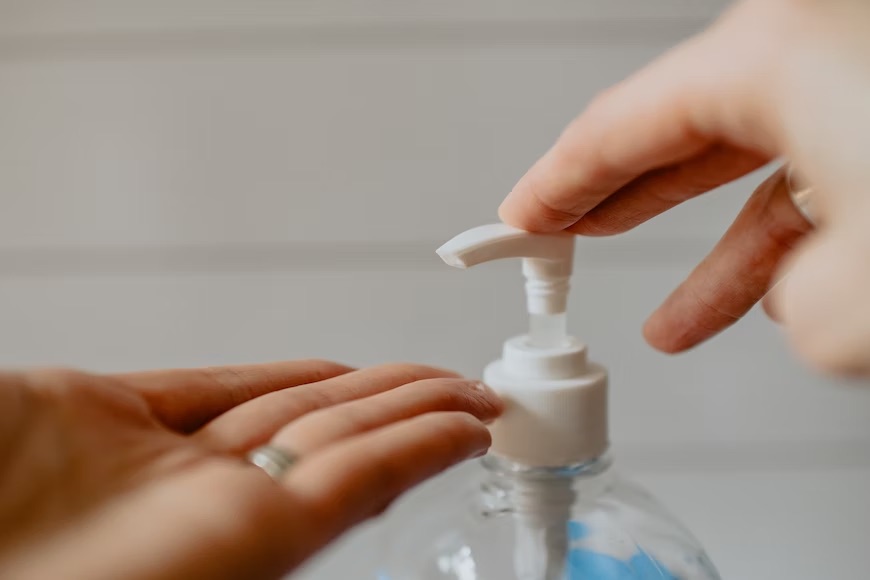Talking about your sexual history to a stranger may not be the most comfortable experience in the world, especially if you are young and unused to talking freely about sex – but it is a vital means by which you must keep yourself and others healthy if you are sexually active.
Sexual health tests usually require both physical and verbal examination, and the invasiveness of the procedure will depend upon what it is that you are being tested for.
All healthcare professionals must be non-judgemental, no matter your age or circumstance, although they do have a responsibility to offer you medical help and advice with regards to your sexual health and practices.
Where to Get a Sexual Health Screening
My Doctor London provides a fast, confidential and comprehensive sexual health testing service at an affordable price. They are located just outside Euston station in Central London.
Here are their details:
- 16 Upper Woburn Place, London, WC1H 0BS
- +44 (0) 203 026 6254
- enquiries@mydoctorlondon.co.uk
What Services Can Clinics Provide?
Sexual health clinics do not only test you for sexually transmitted diseases and infections (STD’s & STI’s), but they can also provide you with contraceptive methods, abortion advice, and counselling for sexual trauma or assault.
My Doctor London provides the following tests:
- STI/STD testing packages (from £50)
- Chlamydia (£50)
- Gonorrhoea (£50)
- HIV (£30)
- Hepatitis B (from £40)
- Hepatitis C (from £40)
- Syphilis (£50)
- Herpes (£55)
Testing for Chlamydia and Gonorrhoea
Chlamydia and Gonorrhea are two of the most commonly contracted STI’s, and they are very easy to test for. For women, all you have to do is take a swab (using a longer-version of a cotton bud) of your genitals to be tested in the lab for detection of any infection. For men, the procedure involves simply giving a small urine sample.
My Doctor London will provide your results by email, telephone, collection or post, according to your preference.
What should I do if I have a common STI?
There is no need to panic if your results have come back positive; there are simple and easy solutions to common STI’s. Both chlamydia and gonorrhoea are treatable with antibiotics; the former is usually treated with a course of oral antibiotics, and the latter with an antibiotic injection.
If you leave either infection untreated, you run the risk of infertility. Because both chlamydia and gonorrhoea can be symptomless, it is important that you get tested so that you can catch them before any lasting damage is done to your body.
It is best to abstain from sex whilst you are carrying an STI, just in case you experience any difficulty such as a condom breaking that could put your partner at risk. After you have been treated for your STI, ensure that you practice safe sex: use a condom!
How are other STI’s tested for?
- Not all STI’s and STD’s can be tested for with a genital swab or urine sample. More serious diseases, such as HIV and syphilis, for instance, require blood tests in order to be detectable.
- HIV: Blood test or swab from inside of mouthConfidential and anonymous testing options are available in many clinics
- Genital herpes(no symptoms): Blood test (drawn from the arm or a fingerstick). Be sure to ask for a type-specific IgG test (not an IgM test)
- Genital herpes(with symptoms): Swab of the affected area; if at first negative for herpes, follow later with a blood test to make sure. Must be done as soon as possible; “viral culture” test not as accurate after 48 hours. A negative culture does not mean that you do not have genital herpes.
- Syphilis: Blood test, or sample taken from a sore. The CDC recommends all pregnant women be tested for syphilis.
- Trichomoniasis: Swab of infected area, physical exam or sample of discharge“Trich” is harder to detect in men than in women
- HPV (genital warts): Visual diagnosis. Warts can occur in both men and women.
- HPV (cervical cancer): Starting at age 21, women should be tested with a Pap test, which looks for cervical cell changes associated with “high-risk” types of HPV associated with cervical cancer. Starting at age 30, women should get an HPV test as well.
(Source: http://www.iwannaknow.org/)
Human Immunodeficiency Virus (HIV)
It is important to note that this disease is relatively rare in the UK, and although you should check for them if you think you may have been exposed to them, the odds are generally in your favour.
To put things into perspective: POZ reported in 2014, using statistics about US citizens, that ‘The risk of contracting HIV during vaginal penetration, for a woman in the United States, is 1 per 1,250 exposures (or 0.08 percent); for the man in that scenario, it’s 1 per 2,500 exposures (0.04 percent, which is the same as performing fellatio).’
The percentages are higher among partners who engage in anal sex (0.11% chance of contraction) and are lower in scenarios involving oral sex. These percentages are based on scenarios in which a condom is not in use.
HIV is not currently curable, but it is easily managed using antiretroviral drugs which prevent the illness from progressing into AIDS. Thanks to newly developed medicine, people with HIV are now able to live relatively long and normal lives.
If you think that you may have been exposed to HIV very recently, you may be administered post-exposure prophylaxis (PEP). PEP is a month-long course of HIV drugs that have a high success rate in preventing HIV infection. For the best outcome, you must begin the course of medication no more than 72 hours after possible exposure.
People at risk of contracting HIV include:
- Men who have unprotected sex with an HIV+ male partner (MSM)
- People who engage in unprotected anal sex with an HIV+ partner
- People who engage in unprotected vaginal sex with an HIV+ partner
- Intravenous drug users
- People who share sex toys with an HIV+ person
- People who engage in oral sex with an HIV+ partner
Pregnancy, Abortion, and Contraception
Full sexual health tests may also involve checking for unknown pregnancies in women. Most sexual health clinics will provide free pregnancy tests which are almost instant. The benefit of undertaking a pregnancy test within a clinical setting is that the healthcare professional will be able to guide you through the next steps no matter your result.
If you think you may want an abortion following a positive pregnancy result, your local health advisor or GP will be able to support you through the process and refer you to a service near to you.
Sexual health clinics are usually able to administer most forms of contraception, including condoms (often for free), oral contraceptives (the pill), the coil, the implant, and more. Contact your local health clinic for more information regarding contraception and which is the right method for you.

